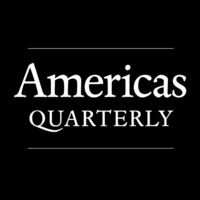
Despite growing protests and widespread suffering, Venezuela’s president continues to outfox the opposition and foreign critics.
http://americasquarterly.org/content/why-venezuelas-nicolas-maduro-doesnt-look-finished-quite-yet
While it’s tempting to describe President Nicolás Maduro’s government as crazy or erratic, a closer analysis reveals that decision-makers in Caracas operate according to a clear – and effective – set of principles.
Indeed, Maduro and his predecessor Hugo Chávez have long been aware of the fact that high-profile ruptures of democratic order – such as imprisoning all antagonistic politicians at once – risks mobilizing and unifying the domestic opposition as well as governments in the region. So, when the need to crack down on dissent or opposition arises, Maduro has opted for an incremental, two-steps-forward-and-one-step-back approach that has allowed him to effectively outfox the normative frameworks established to preserve democracy in Latin America.
Last week’s decision to bar opposition leader Henrique Capriles from running for president in 2018 is consistent with this strategy. It was also on display when Venezuela’s Supreme Court usurped the functions of the democratically elected National Assembly. After an international uproar, fully expected by government officials, Maduro asked the courts, which he controls, to back off.
What many international observers overlooked, however, was that Maduro had still achieved his primary goal, as the back-and-forth left in place comprehensive new powers for Maduro to sign oil deals for Venezuela’s state-run oil company without approval by Congress. The president now has the autonomy to launch new joint ventures with foreign firms, or to sell the country’s oil fields, which contain the world’s largest proven reserves. It is a crucial tool as in the regime’s increasingly desperate battle for survival. Last year, for example, the government pocketed half a billion dollars from the Russian state-run company Rosneft, which increased its stake in the Petromonagas joint venture.
After barring Capriles from public office for 15 years, protests ensued – and then the government decided to make a small concession and allow regional elections to go ahead. This was not a sign that Maduro’s main concern is growing international pressure. Rather, it points to Maduro’s clear belief that holding free and fair elections would almost certainly lead to chavismo’s defeat at the polls. That, in turn, would result in the prosecution of a sizeable number of current political and military leaders for involvement in drug trafficking, corruption or human rights abuses. Renewing chavismo by temporarily allowing another party to take over is not an option.
None of this suggests that Maduro is certain to remain in power. His recent moves have, at least temporarily, re-energized the formerly anemic opposition and led to renewed protests. The economy shows no signs of recovery and the full-blown economic and humanitarian crisis continues, with 82 percent of households now living in poverty. Yet there are four reasons why Maduro has a solid chance of surviving the latest controversy relatively unscathed:
Continue here.
Read also:
With NAFTA’s Future Uncertain, Brazil Should Reach Out to Mexico (Americas Quarterly)









